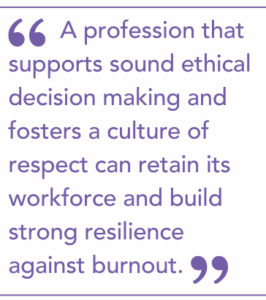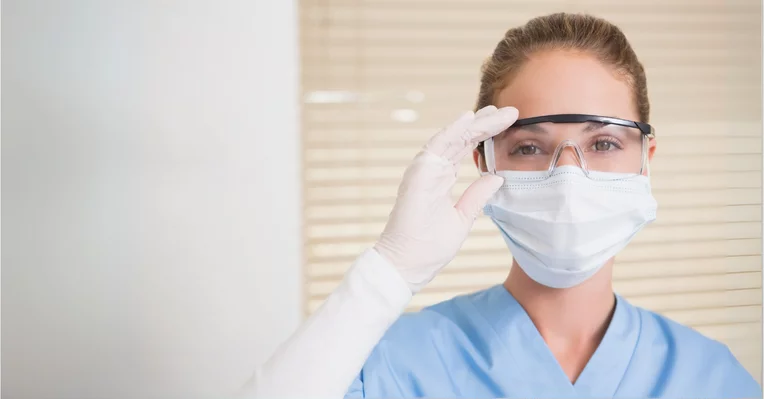By Donna Wicker, RDH, MEd, EdD, FADHA
August 19, 2025
Professional autonomy in dental hygiene is long overdue.
Autonomy is the next natural step in the evolution of the profession. Professional autonomy means having the authority to make decisions and the freedom to act in accordance with one’s professional knowledge base. It is a significant area of discussion and study in other healthcare professions, has become a hallmark of trust and respect in healthcare, and it’s time that dental hygiene be recognized in this same light.
Nursing is a great example of a profession similar to dental hygiene that has embraced autonomy, along with other health professions that have induced an expansion of opportunity, expanding roles, elevating impact and created forward momentum in their field.1 Dental hygiene can and should do the same.
How the Profession is Perceived
What do people see when they look at a dental hygienist? We are licensed healthcare providers who assume full responsibility for the care we provide. Yet outdated perceptions persist. The idea that dental hygienists should “do what they’re told” and that they are not educated patient care providers is a concerning concept that has perpetuated far too long. These notions no longer serve us, our profession, or the individuals for whom we provide preventive care.

Dental hygienists are skilled, educated healthcare providers who practice as licensed clinicians and are held accountable and liable for their actions and the treatment they provide. A dismissive attitude toward hygienists and the importance of the comprehensive care they provide for patients frequently persists today, even within the profession of dental hygiene itself. When hygienists are empowered to practice to the full extent of their training, patient outcomes improve and along with them, the dental hygienist’s career satisfaction.2
In today’s complex healthcare environments, accountability matters. Dental hygienists are often put in difficult situations. If directed by a dentist to do something harmful, unethical, negligent, or not within their scope of practice, the hygienist is liable for their actions. Most assuredly, the directing dentist would not accept responsibility, arguing that the hygienist is licensed and responsible for their own actions.
We have all heard horror stories: dental practices that overschedule their hygienists every hour or direct the hygienist to provide a procedure that doesn’t match the patient’s condition. The defense used by the clinicians within these practices is, “It’s the dentist’s practice; they diagnosed and told me to do it.”
Compromising on patient care and ethics is a slippery slope that may lead to job dissatisfaction and burnout. The ability to provide high-quality patient care and maintain control over this aspect is important for job contentment.
It is important to stress that as healthcare providers, hygienists are responsible for their clinical decisions and the care they provide. It is naive to assume that hygienists bear no responsibility to their patients or profession, especially in today’s litigious society. While these situations test our resolve, they also underscore the importance of maintaining strong professional boundaries. The truth is, that when hygienists are empowered to provide high-quality care without compromise, everyone

benefits—patients, practices, and providers alike. A profession that supports sound ethical decision-making and fosters a culture of respect can retain its workforce and build strong resilience against burnout.
Expanding Hygienists’ Locus of Control
The lack of professional autonomy in practice is a frustrating and oftentimes final straw for many dental hygienists. Workplace challenges are real, and we must address them with courage and clarity. Feeling disrespected and unable to make decisions regarding patient care leads to professional dissatisfaction and a lack of fulfillment. When hygienists are directed to compromise their ethics or are undermined in practice, many simply concede for the sake of workplace harmony or out of fear of losing their job. Unfortunately, this constant pressure to submit leads to some leaving the profession entirely.
The practice of dental hygiene is very demanding.3 The profession requires technical skill application, critical thinking, and significant emotional energy. Burnout and dissatisfaction with the dental hygiene profession has been reported with some saying they intend to leave the profession.4 Frustration with the work environment, lack of support, and inability to advance within the profession are all issues of concern.5
Healthcare occupations are prone to emotional stressors and burnout. Limiting the control hygienists have over their professional practice adds a barrier that can contribute to dissatisfaction and frustration.6 Feeling respected, valued, and appreciated are important factors in job and life satisfaction. Shifting the norm means no longer accepting conditions that diminish our role. It means believing in our capacity as oral health care practitioners and advocating for better—for ourselves and for patients. Respect, value and appreciation are not luxuries, they are essential to any healthcare setting.
Shifting the Paradigm
Change begins within the profession. We have the power to shape the dental hygiene profession. Dental hygienists shouldn’t compromise the care they provide and should stand up for a respectable professional environment. The conscientious and competent clinician can discern patient treatment needs relevant to their scope of practice and provide appropriate care.
It is concerning that even within the profession there is a lack of recognition and/or respect for the professional responsibility of the dental hygienist. This diminished attitude—evident within our own profession—is demonstrated by the diminished membership participation in our own professional association, the ADHA.
Agents of Change
It would be beneficial to direct more education and information toward the professional role of hygienists and the importance of what we do. Education and outreach are crucial. Much of the public still has no idea of the rigorous education and licensure requirements for dental hygienists. We are not just part of the system; we are agents of change within it.

Let’s continue to lead with excellence and purpose by supporting each other in workplaces that value integrity and professionalism. Dental hygienists should be change agents and represent themselves as the professionals they are. The pursuit of autonomy is not about separation, it’s about elevation. Dental hygienists should be advocates for the public, for access to care, and for our profession.
A high standard of care should be the norm, not the exception. The discouraging, sometimes belittling environments in the dental world should not be permitted to persist. If it isn’t tolerated, it will stop. The profession of dentistry needs to advance and move forward as other healthcare professions have. Advocacy for prevention and improving dental health lies with us—the profession that was founded on prevention. Together, we can raise the standard and reshape the narrative, one empowered clinician at a time.
____________________________________
References
- Ragnhild Skår, “The Meaning of Autonomy in Nursing Practice,” Journal of Clinical Nursing 19, no. 15-16 (2010): 2226-2234, https://doi.org/10.1111/j.1365-2702.2009.02804.x.
- Lisa Z. Li et al., “Nurse Burnout and Patient Safety, Satisfaction, and Quality of Care: A Systematic Review and Meta-Analysis,” JAMA Network Open 7, no. 11 (2024): e2443059, https://doi.org/10.1001/jamanetworkopen.2024.43059.
- Naushin Malcolm et al., “Occupational Stressors of Dental Hygienists in the United States,” Work 65, no. 3 (2020): 517-524, https://doi.org/10.3233/WOR-203106.
- Bhavik M. Patel et al., “Job Satisfaction, Burnout, and Intention to Leave among Dental Hygienists in Clinical Practice,” Journal of Dental Hygiene 95, no. 2 (April 2021): 28-35.
- Anne Knutt et al., “Compassion Satisfaction, Compassion Fatigue, and Burnout among Dental Hygienists in the United States,” Journal of Dental Hygiene 96, no. 1 (February 2022): 34-42.
- Jazzmin Brooks et al., “Compassion Fatigue, Compassion Satisfaction, Burnout and Alcohol Use Among Dental Hygienists,” Alcohol and Alcoholism 58, no. 1 (January 9, 2023): 76-83, https://doi.org/10.1093/alcalc/agac036.
____________________________________
 Donna Wicker, RDH, MEd, EdD, FADHA is deeply passionate about the profession of dental hygiene. She practiced clinically full time for more than 20 years prior to moving into education. Dr. Wicker began teaching dental hygiene full time 15 years ago and loves seeing the next generation of hygienists embrace their critical role in improving patient health. Having witnessed numerous changes in the dental profession over the years, Dr. Wicker is a long-time ADHA member and is especially enthusiastic about the growing movement toward greater professional autonomy for dental hygienists—a change she believes is long overdue.
Donna Wicker, RDH, MEd, EdD, FADHA is deeply passionate about the profession of dental hygiene. She practiced clinically full time for more than 20 years prior to moving into education. Dr. Wicker began teaching dental hygiene full time 15 years ago and loves seeing the next generation of hygienists embrace their critical role in improving patient health. Having witnessed numerous changes in the dental profession over the years, Dr. Wicker is a long-time ADHA member and is especially enthusiastic about the growing movement toward greater professional autonomy for dental hygienists—a change she believes is long overdue.
Disclaimer: While Dr. Wicker is an active member and Professional Fellow of ADHA, this opinion piece is written in a personal, not official capacity.

 Audio Version
Audio Version

